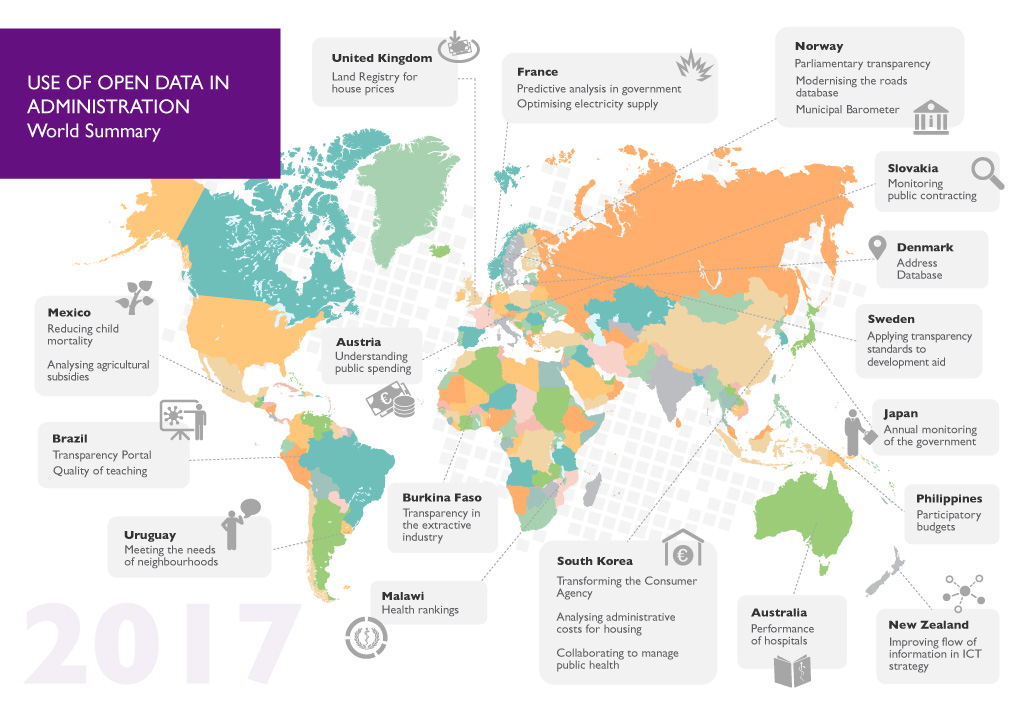
The public sector is not only a large supplier of open data but also one of the largest users and beneficiaries of the opening of government data. The report ‘The value of open data for the Government’ that we published on Datos.gob.es outlines a large number of examples of how the government could see benefits in various areas and rely on the data for feedback and to reflect, cooperate, understand, optimise, and learn.
The creation of an open database in Japan to improve support for victims of the devastating earthquake in 2011, the early warning system to detect trends in diseases or epidemics launched by the Korean government, the portal for the quality of teaching in public schools in Brazil that drew on data from the Ministry of Education, the buildings in France in order to optimise supply, and the large global database of companies presented by Open Corporates are excellent examples of how to make public administration more agile and efficient by making good use of data.

The report highlights how the use of open data improves the efficiency and effectiveness of the government itself through better planning of available resources, collaboration between different departmental areas, scrutiny of the correct use of resources, improvements in the interoperability of data and processes, as well as the adoption of standards that facilitate the sharing and storage of data.
It also emphasises that the use of such open data drives public innovation by contributing to the identification of patterns that help decision-making, to more active development and implementation of public policies, and the improvement of data quality thanks to public feedback.
The document compiles concrete examples, such as the improvement in the management of public health services in Malawi due to the study of the in the various districts, the reduction in levels of infant mortality in Mexico due to the greater availability of information, and the significant improvement in quality seen in the database of addresses in Denmark due to the openness of the information.
Another advantage and benefit of open data for the government itself, as detailed in this report, is the promotion of transparency and innovation. ‘Monitoring of government's decisions and actions can be better performed, facilitating understanding of public policies and helping citizens to rebuild trust in their governments,’ notes the report.
Examples of the potential of open data in government include the Philippines’ open and participatory budgeting, the scrutiny of contracts in Slovakia due to their publication online, the project to publish all the information regarding public spending by local governments in Austria, and the transparency portal in Brazil.
The attached Report can be downloaded in PDF, Word, and ODT format.